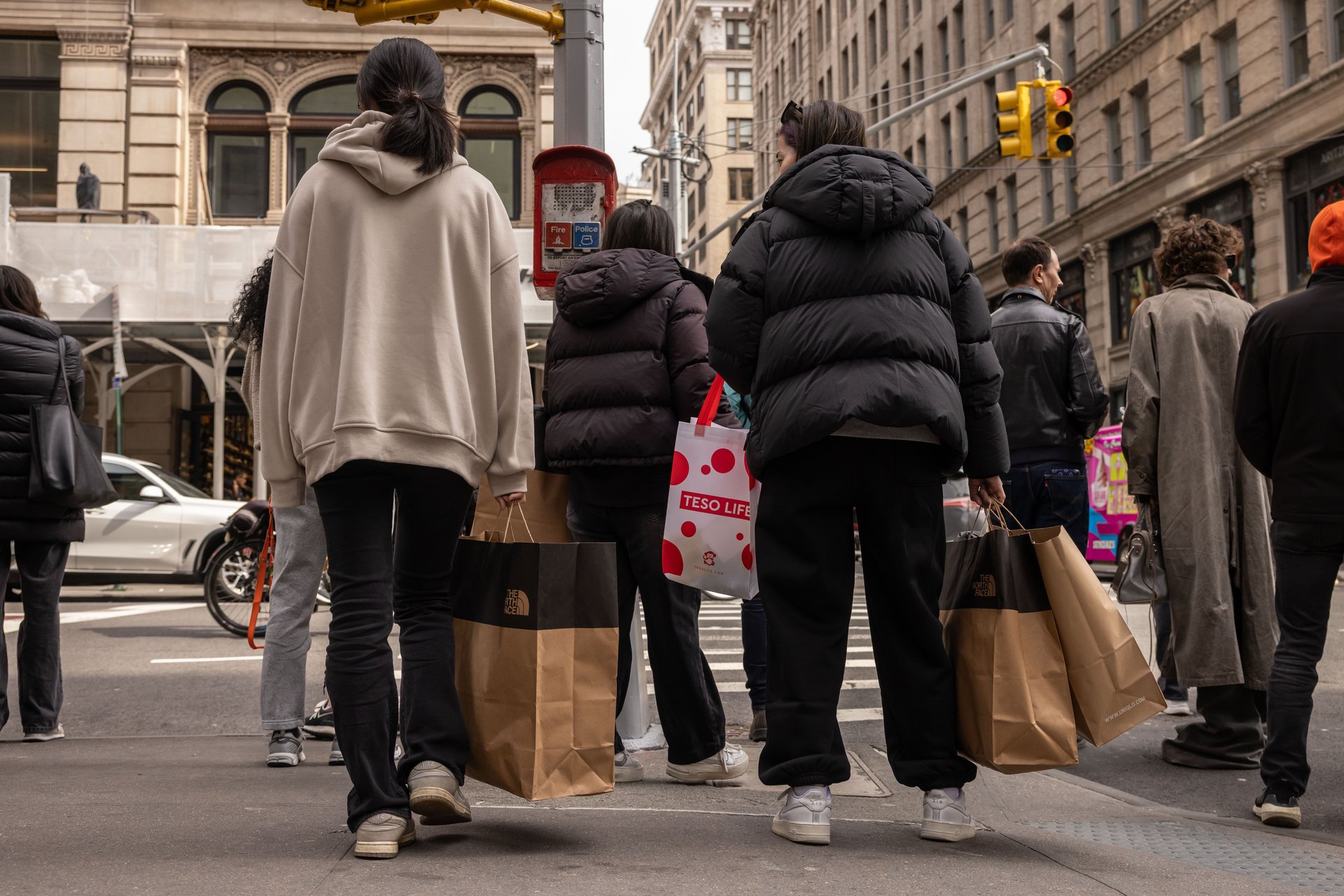Concerns over tariffs, inflation, and slowing job growth dent consumer confidence
A University of Michigan poll showed consumers "expect both inflation and unemployment to deteriorate in the future," said the survey's chief

Yuki Iwamura/Bloomberg via Getty Images
American consumer confidence worsened in August, ending a three-month stretch of gains, as high prices, mounting inflation, and worries about U.S. tariffs weighed on household outlooks.
Suggested Reading
The University of Michigan’s preliminary August sentiment index fell to 58.6, down from July’s reading of 61.7, while short-term inflation expectations jumped to an annual rate of 4.9% from 4.5%.
Related Content
“Consumers are no longer bracing for the worst-case scenario for the economy feared in April when reciprocal tariffs were announced and then paused,” said Surveys of Consumers director Joanne Hsu. “However, consumers continue to expect both inflation and unemployment to deteriorate in the future.”
Consumers’ anxieties, which were recorded in the two weeks to Aug. 11, could be justified, after separate data released earlier this week showed July’s wholesales inflation numbers far outstripping analysts' forecasts.
The latest Producer Price Index (PPI) rose 0.9% month-over-month, marking the largest increase since early 2022, sending stocks falling and prompting traders to pare back their bets of imminent Federal Reserve interest rate cuts. Northlight Asset Management chief investment officer Chris Zaccarelli called the release “a most unwelcome surprise.”
The consumer confidence data also comes hours after fresh figures showed retail sales grew last month as auto purchases once again led the sector's gains, according to advanced estimates from the U.S. Census Bureau released Friday. They showed a nearly a 4% increase from July 2024.
A separate University of Michigan report released Friday showed that 58% of consumers plan to cut back on spending this year as they brace for further inflation, with respondents pointing to holding back on purchases like cars, household items and eating out.
Hsu added that consumers “currently expect labor markets to weaken, which would reduce their income prospects and their ability to spend”.
Earlier this month, Bureau of Labor Statistics data showed the U.S. added just 73,000 jobs in July with significant downward revisions for the prior two months, indicating the economy might be weaker than anticipated.
On the Friday sentiment survey, the current conditions gauge — which tracks consumers’ judgment of the economy right now — also fell to a three-month low of 60.9.
The University of Michigan will release its final August 2025 sentiment figures on Aug. 29.
